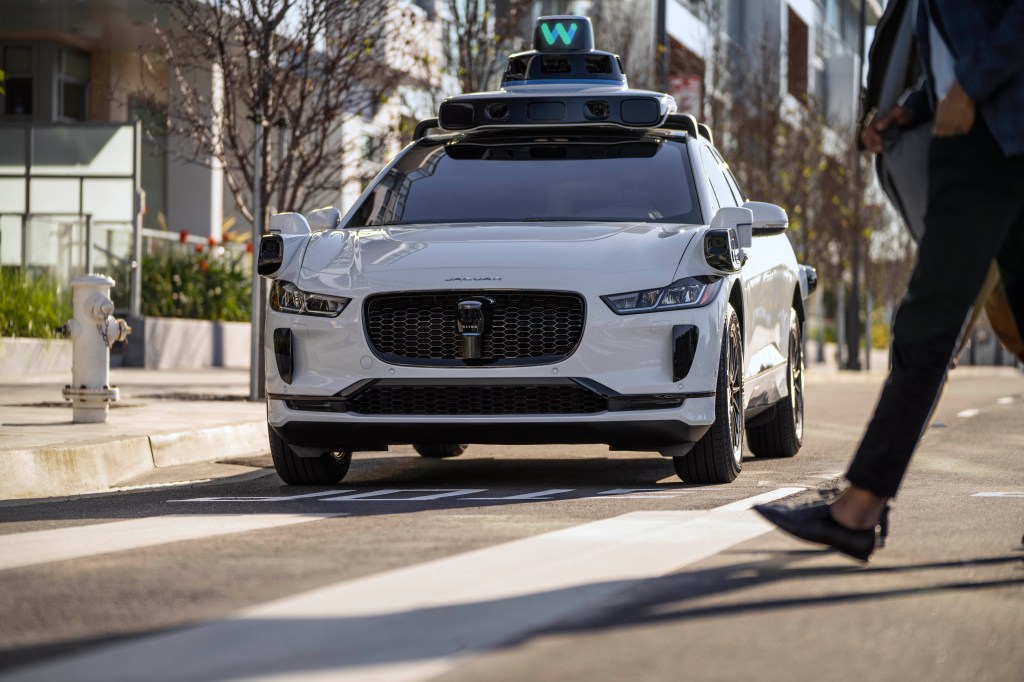TechCrunch Mobility: Decoding the True Cost of Waymo and Modern Transportation
Stay on top of the latest in transportation with this week’s edition of TechCrunch Mobility. From regulatory shifts to innovations in autonomous vehicles and startups making headlines, here’s what’s shaping the mobility sector.

Accelerating Self-Driving Vehicle Regulation
The National Highway Traffic Safety Administration (NHTSA) has unveiled plans to simplify and speed up the exemption process for self-driving cars — particularly those without conventional controls such as steering wheels or pedals. This initiative addresses the challenges with the current Part 555 exemption process, which has been seen as lengthy and not well-suited for vehicles equipped with advanced automated driving systems. Automakers, however, must still prove that their vehicles meet safety standards and that the requested exemptions serve the public interest.
Looking beyond self-driving vehicles, recent executive orders have been issued targeting drone development and expediting the future of supersonic air travel, signaling broader federal interest in emerging transport technologies.
Insider News: Behind Micromobility’s Latest Moves
Further insider revelations have come to light regarding the collaboration between Jony Ive’s LoveFrom design firm and electric automaker Rivian. Their joint efforts led to the formation of a spinout company, Also, focused on micromobility. The internal project, codenamed Inder, included LoveFrom’s expertise in industrial design and motor innovation, although UI and user experience design remained in Rivian’s domain. The initial trademark for "Inder" was filed but later abandoned as the project evolved.
Major Funding & Startup Momentum
Zero-emissions jet manufacturer JetZero announced a $4.7 billion investment over the next decade in a new North Carolina factory. Backed by venture capital firms and airlines such as United and Alaska, JetZero’s blended wing aircraft could reshape future air travel. The deal includes over $1.1 billion in state performance incentives, conditional on JetZero generating 14,000 jobs between 2027 and 2036.
Among battery technology startups, Mitra Chem has secured $15.6 million of a planned $50 million round, highlighting investor confidence in new approaches to battery materials for electric vehicles.
Autonomous Vehicle Updates: Waymo, Uber, and More
According to data from ride aggregation app Obi, rides with Waymo’s self-driving cars consistently cost more than those from Uber or Lyft, yet a growing segment of passengers is willing to pay the premium for an autonomous experience. Waymo’s pricing strategy marks a notable shift in how consumers perceive value in transportation — emphasizing technology and safety over cost competition.
Meanwhile, Waymo’s robotaxis entered the spotlight during recent Los Angeles protests, where several vehicles were vandalized and set alight. This event has prompted new discussions around surveillance practices — especially regarding how autonomous vehicles equipped with cameras and sensors handle sensitive footage during such incidents.
Tesla is also approaching its much-anticipated robotaxi service launch, aiming to commence operations in Austin, Texas on June 22. Across the Atlantic, Uber and Wayve are teaming up to introduce fully driverless services in London, following the UK’s accelerated rollout framework for commercial autonomous pilots expected in spring 2026.
Micromobility and Electric Innovation
Micromobility innovation continues, with Infinite Machine unveiling the Olto seated scooter, expected to hit the market at $3,495. The Olto offers a 40-mile range powered by a user-swappable 48V lithium-ion battery, signifying both increasing consumer demand and VC interest in affordable, modular electric transportation.
Additionally, Apple announced several in-car tech updates at its latest WWDC event, such as widgets and enhanced messaging features for CarPlay in the upcoming iOS release.
DeepFounder AI Analysis
Why it matters
The evolving landscape of autonomous vehicles and new mobility tech directly impacts startup founders and innovators. Regulatory changes, like the NHTSA’s streamlined process for AV exemptions, could lower barriers for new entrants and spark a wave of experimentation in both hardware and ride services. The increased willingness of consumers to pay a premium for AV rides also signals a shift toward valuing technology, safety, and experience over price alone.
Risks & opportunities
As the competition heats up between autonomous and ride-hailing services, early adopters may help validate sustainable business models for mobility startups. However, incidents involving vehicle vandalism and concerns over in-vehicle surveillance create both reputational and legal risks. There’s also uncertainty regarding consumer trust and regulatory consistency. Still, the trend toward modular micromobility and alternative battery innovations offers a path for startups to differentiate beyond the crowded four-wheel AV space.
Startup idea or application
Inspired by these developments, a promising startup concept could be a platform dedicated to autonomous fleet risk management. This would include predictive analytics for vandalism hotspots, real-time compliance monitoring for AV surveillance regulations, and integration with insurance services. The platform could service operators like Waymo, Uber, or any startup launching driverless fleets, helping them manage both safety and public perception proactively.
Transportation Autonomous Vehicles Startup Funding Regulation Micromobility
Visit DeepFounder AI to learn how to start your own startup, validate your idea, and build it from scratch.
Read more articles in our DeepFounder AI blog.

Comments ()